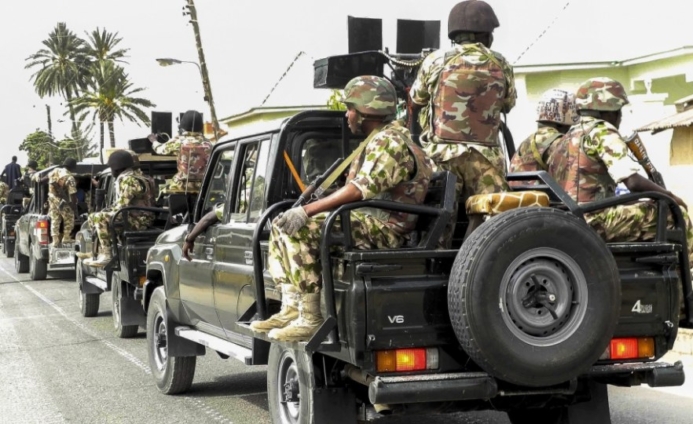Gunmen in Nigeria kidnapped around 100 people, including women and children, in two-weekend attacks in Kaduna state, residents and police said on Monday.
Kidnappings by criminal gangs demanding ransoms have become an almost daily occurrence in Nigeria, especially in the north, with authorities seemingly powerless to stop them.
Kaduna police spokesperson Mansur Hassan confirmed the incident in Kajuru Station village on Sunday night but could not give a figure on those missing. He said security agents had been deployed to rescue the villagers.
Tanko Wada Sarkin, a village head, said 87 people were taken.
"We have so far recorded the return of five people back home who fled through the bush. This attack makes it five times that these bandits are attacking this community" he told Reuters by phone.
Residents said armed men dressed in army uniform arrived in the village undetected because they had parked their motorbikes away from the village.
Aruwa Yau, another resident, said he was captured but released by the gunmen because he struggled to walk due to poor health. He was receiving treatment at a local government clinic, he said.
Gunmen are known to force-march their victims deep into the bush, holding them for up to months while awaiting ransom payments.
The abductions come after an armed gang seized 286 students and staff from a school in early March in Kuriga in Kaduna state and gunmen seized 61 people on March 12 in Buda community.
In Dogon Noma, another community in Kajuru local government area, gunmen abducted 16 people from their homes in an attack on Saturday night, residents said.
Local resident Daniel Shamang said they had not heard anything from the abductors or the missing villagers.
Kidnappings at schools in Nigeria were first carried out by jihadist group Boko Haram, who seized more than 200 students from a girls school in Chibok in Borno state a decade ago.
But the tactic has since been adopted by criminal gangs without any ideological affiliation seeking ransom payments.
The kidnappings are tearing apart families and communities who have to pool their savings to pay the ransoms, often forcing them to sell prized possessions like land, cattle and grain to secure the release of captured loved ones.
Latest Stories
-
Ghanaian youngster Mohammed Sofo scores in New York Red Bulls penalties win over FC Dallas
6 minutes -
Minority demands transparency as reserve figures spark concern
9 minutes -
Mahmaa has vindicated the NPP on Cedi appreciation – Amin Adam
13 minutes -
Osman Bukaris stars as Austin FC beat Houston Dynamo in MLS Cup
29 minutes -
Aflao: Police probe alleged manhood shrinkage
44 minutes -
Former King Faisal striker Kwame Peprah likely to leave Kerala Blasters
55 minutes -
Interior Minister raises alarm over surge in unregistered weapons
1 hour -
Brighton’s Ibrahim Osman returns after Feyenoord loan spell
1 hour -
Tottenham trio forced to wait for winner’s medal
1 hour -
AMA decongestion exercise: It will only last for 7 months – former MP Ebenezer Nartey
2 hours -
Tema fire: Chief Fire Officer joins firefighters to extinguish flames
2 hours -
NPC Ghana reassigns Isaac Tetteh as Media Officer and Administrator for Para-Sport development
2 hours -
Today’s Front pages: Thursday, May 22,2025
2 hours -
Ghana Stock Exchange records over 30% growth in 2025 Q1; best securities market in West Africa
3 hours -
Smirnoff in the Mix Vol. 2: A bold celebration of Ghana’s DJ Culture, Powered by Chichi DJ
3 hours

